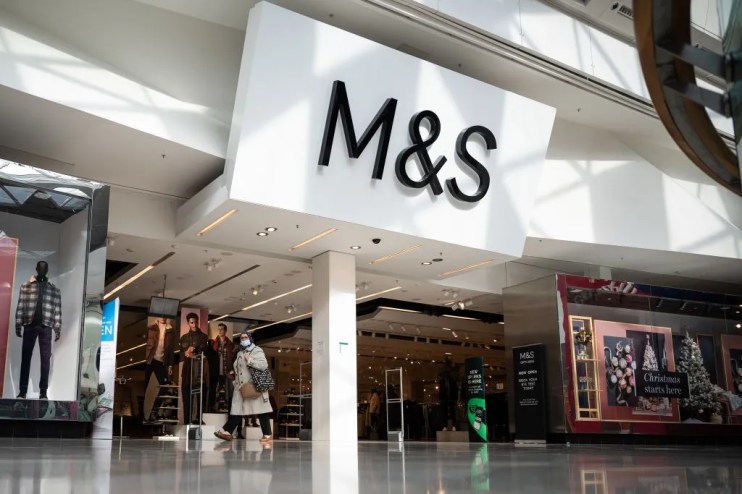M&S warns cost of living crunch will slow sales growth

Premium supermarket M&S has issued a stark warning against upcoming inflationary headwinds, causing its share price to dive.
Its share price was down 1.5 per cent on Wednesday afternoon, with grocer rivals Sainsbury’s and Tesco also down by 1.6 per cent and 0.90 per cent respectively.
However, M&S later saw shares rebound, up almost three per cent.
In a forecast, M&S highlighted substantial inflation in both cost of goods sold and operating costs including fuel, power, building materials and maintenance.
Due to historic inflation, customers’ spending capacity was “under pressure,” M&S said, with the supermarket anticipating an “adverse impact on volumes due to price inflation, slowing the rate of sales growth.”
Food cost inflation is being driven not just by global supply issues but also labour shortages, border and customs-related costs, and in some cases reduction in UK capacity by growers and producers.
M&S said its Clothing & Home arms were also impacted, with rocketing factory cost prices, transport and freight costs, combined with continued supply issues in China.
However, Laura Hoy, equity analyst at Hargreaves Lansdown, said M&S may be protected from the inflationary hit to customer’s discretionary spending power owing to its more affluent customer base.
“Unlike some of its discount peers, Marks’ position as a premium food brand could serve it well through this period of inflation. The group’s shored up its value proposition and that should continue to attract higher income shoppers,” she added.
It comes as outgoing CEO Steve Rowe said the retailer had finally lowered prices below rival Waitrose.
The supermarket said it would also not receive business rates relief this year while its international division would not benefit from a profit contribution from Russia.
Statutory revenue was up to £10.9bn for the year ending 2 April, while profit before tax jumped to £522.9m for the period.
The British firm caveated its results by stating: “The impact of Covid in 2020/21 renders comparisons to the prior year less meaningful”, adding that any comparisons would be made alongside 2019/20.
However, Rowe, said the results show that the company had “fundamentally changed”. He added: “While there is much more to do, the business has moved beyond proving its relevance and has the opportunity for substantial future growth”.
Indeed, its food business has gone from among the lowest performing UK food businesses on like for like sales in the last four years to the top performing over 12 months.
In a note published on Wednesday, Peel Hunt concluded there would be no change to the grocer’s full year forecasts despite “a small beat on profits.”
“Looking ahead the guidance is for forecasts to be in the early 400s, so that implies no change to our forecast of just over £400m,” the note added.
The food offering for the firm has also been transformed by the Ocado joint venture investment, which gave M&S the online grocery capability that it didn’t previously have.
However, Ocado saw a normalisation of basket sizes as a result of the pandemic slowdown and the shape of trade, resulting in a four per cent decline in revenue. Ocado’s share price tumbled more than five per cent on Wednesday afternoon.
This is buffered by the fact that the firm had high levels of discounting at around 30 per cent of Food and 35 per cent of Clothing & Home sales four years back, eroding customer trust. Now this has halved to less than 15 per cent and 18 per cent respectively.